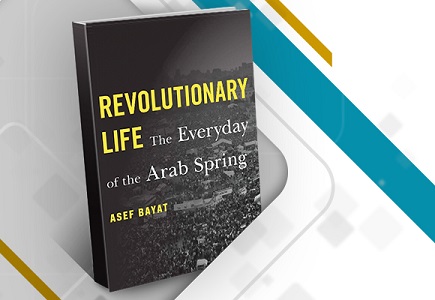Impact of Covid 19 on the Purchase Behaviour of Retail Consumers in Malappuram District – an Analytical Study
Mohammed Yaseen T T
Assistant Professor of Commerce, KTM College of Advanced Studies, Karuvarakundu
Volume No : 3
Issue No : 1
Retailing in India is one of the pillars of its economy. The Indian retail market is one of the top five retail markets in the world by economic value. India is one of the fastest growing retail markets in the world .The Indian retail industry is composed of organized and unorganized retail markets .The Indian retail experience had gone beyond the traditional brick-and-mortar store and includes the numerous touch points such as online stores ,social networks, call centers and so on .
Unfortunately, in the present situation , covid 19 has become humanity's biggest disruptor of life and businesses The corona virus pandemic has taken the whole world by storm. India along with other parts of the world is facing huge losses in each and every sector due to covid 19.While people are caught up in the fear of spring of corona virus, the nationwide lockdown announced by Prime Minister Narendra Modi on March 24, led to severe disruptions and confusions among people. Now each state Government is announcing unlock with all precautions and required measures. In between this lockdown and, consumer behaviour in India and across the world also changed rapidly over the course of the crisis fastest. So the retailers and marketers are also struggling to find various ways to run their business somehow by fulfilling the needs and wants of consumers by understanding their purchase behaviour in the retail sector, either from the online or physical mode, during the lockdown period.
Key words; Covid 19 pandemic, purchase behavior
1.1 Introduction
In today's pandemic environment, consumers are storing unlimited food and other products including essential items such as rice, wheat packaged food, home care products etc. Which will definitely lead to rise in products. This left the poor section of society with no other option but to live with hunger and faced a lot of problems.
Considering the above situation, in the initial days of pandemic in India, marketers were trying to satisfy customers’ needs by delivering products and services through online channels but the delayed delivery of products due to national lockdown made the consumers feel restless. Retail giants like Amazon, Flipkart etc. faced tremendous decline in their sales and loss in business.
In Kerala, the lockdown has resulted in unprecedented loss of employment in all sectors of economy. Due to prolonged lockdown period, quarantine, physical distancing and other isolation measures to suppress the transmission of covid19, the state's economy is heading towards recession. The retail sector in Kerala was directly affected by the lockdowns, which led to change in buying behaviour of consumers in retail sector. This study will help to understand the changes in consumer purchase behaviour in the overall retail sector.
1.2 Statement of The Problem
It was challenging for the for the retailers to cope up with novel corona virus pandemic. This covid pandemic had turned the lives of these retailers upside down. Consumers were reluctant to go for shopping because of the fear of transmission of corona virus ias changed as a result of the pandemic .The retailers had no idea about the buying behaviour and expectation of consumers. This study would be very helpful for retailers to develop new marketing strategies to meet the expectations of consumers.
1.3 Objectives of the study
• To study about retail outlets and consumer purchase behaviour as an impact of covid
• To know the factors influencing consumer purchase behaviour in retail sector in covid 19 period .
• To estimate consumers’ preference towards retail shops for purchase of daily needs during covid 19 .
• To analyse the reasons for preferring a particular retailer for shopping.
• To evaluate the spending pattern of consumers towards different commodities during covid period
1.4 Significance of the study
The academic significance of this research is to extend and advance the current research conducted in retail sector. The practical significance of this study can be very significant and influential for all the retail outlets of retail sector in Malappuram district. This study helps to understand the recent trends in the consumer behaviour in retail sector, amidst covid 19 pandemic. This study would be helpful for retailers to predict market trends and understand the expectations and preferences of consumers in this covid 19 pandemic period.
1.5 Scope of the study
Retail sector is one of the fastest growing sectors in India. Also, consumer behaviour is an important element in the marketing activity. This study aims at analysing the variations in consumer purchase pattern during covid 19.The arrival of corona virus pandemic had completely changed consumers’ buying behaviour. Hence, this study would be helpful for retailers to understand the needs and wants of consumers in the course of pandemic period.
Methodology
1.6.1 Sources of data
The data is collected by way of primary source and secondary source of data.
Primary Data: The primary data is collected by using a well - structured questionnaire which is distributed among consumers above the age group of 18 years.
Secondary Data: The secondary data relevant for the this study were collected from the published journals and magazines, libraries, books ,reports and websites.
1.6.2 Sample Design With Area Of The Study
For the collection of primary data , 60 samples were taken from Malappuram district .
1.6.3 Sampling Method
The samples are collected through convenient sampling method for the purpose of collection of primary data.
Review of Literature
Alvarez & Marsal (November 2020):Companies, investors and government entities around the world turn to Alvarez & Marsal(A&M) for leadership ,action and result. Privately held since its founding in 1983,A&M is a leading global professional service firm that provides advisory, business performance improvement services. In their research report,” The shape of Retail: Covid 19 &the future of retail supply chains”, it explores the structural changes and contextualizes the impact of Covid 19 on supply chains across European retail industry. They had conducted an online survey and telephone interviews with 30 of the largest European retailers, with a combined turnover of over €600 billion, between 28 September to 7 October 2020,which was used to support their rationale for the future of retail supply chains, across Europe. It concludes that some companies are clearly better prepared than others to mitigate the impact of covid 19 and other challenges that European retailers will face regarding their supply chains in the coming years.
Gaurav Shetty And Sapna Jain Dabade (September 2020):In their research report,”Covid 19 & Indian Commerce: An analysis of Fast Moving Consumer Goods (FMCGs) & Retail Industries of Tomorrow”, they analyse the demand and supply disruptions due to covid 19 in two major sectors of economy-Retail and FMCH. It was found that the non-essential segment of retail is being hit the most during lockdown. Categories of retail like packaged food and commodities saw the fastest recovery. Essential retail saw growth during covid 19 lockdown in India. Categories like homecare also saw an increase in demand during lockdown. On the supply side, e-tailor, e-grocery has received significant attention for essential Good. A major trend that was observed in India during lockdown phase is that people started buying from their neighbourhood stores.
C.Vijai And P.Nivetha ( July 2020):In their research study, “A study on corona virus (Covid 19) impact of consumer buying behaviour with special reference to Chennai City”, they found that majority of the respondents are spending the money only on essential goods. Many of the respondents agreed that covid 19 had changed their food behaviour and they have reduced unnecessary expenditures. Most of them have started purchasing more fruits and vegetables during covid 19.This research is purely based on questionnaire method using Google forms.The data have been collected from 256 respondents. They conclude that covid 19 had entirely changed the lifestyle of consumers.
Ganesh Pandit Pathak (July 2020):In his research paper, “Impact of lockdown due to covid 19 on Consumer Behaviour while selecting retailer for essential goods”, he aimed at understanding the change in consumer behaviour while selecting a platform for shopping of essential goods and reason for selecting a particular retailer for shopping. The researcher has used an online Google form for data collection. He has used convenient sampling method for selection of samples. A total of 172 samples were considered for the study. He has used statistical tools like frequency, percentage , measures of central tendency ,measures of dispersion and so on. It has been observed that for grocery and bakery items customer has changed their preference. After the comparison between organized, unorganized and online retailers, it has been observed that customers prefer an unorganized platform than organized ones. Easy availability, security, less rush are the major reasons behind preferring a particular retailer.
Rajalakshmi.K,Rajavel.R,Anitha.A And Aartheeswari.E ( July 2020):In their research study,” Challenges and Opportunities of Retailing in India during Covid 19 Pandemic period-A Behavioural approach”, they focus on analysing the challenges faced by retailers during pandemic such as fall in consumption, diminishing brand loyalty, reduction in money flow, operational difficulties and so on.It also emphasizes on the opportunities for retailing during pandemic such as market penetration, diversifying the products benefits for unorganized retailing and so on. They conclude that Covid 19 had a great impact on non-essential item retail business whereas there had been a positive impact on essential item retailers. This covid 19 has been an important factor for the retail business to have new facets.
Andrew Furman (June 2020):In his research paper, “A study on Impact of Covid 19 on Retailers ,brands and Marketers” he examines how corona virus had adversely affected the retail industry and marketers.He also provide some measures for the retailers to survive a post-covid future He emphasizes that to be a successful post-covid,a truly successful brand must be able to first anticipate and then meet the needs and preferences of customers.
Sapna Sood (June 2020):In her research paper, “Impact of covid 19 on consumer behaviour in India” she analyses the recent trends in the consumer behaviour in our country, amidst covid 19 pandemic. The aim of the researcher was to fill the gap in the academic literature where no research paper had much focused on understanding the behaviour of the consumers in India at the time of pandemic.
Bharat Patil (May 2020):In his research paper,” Impact of Covid 19 pandemic on Consumer Behaviour”,the researcher attempts to identify the challenges faced by consumers due to covid 19.It also attempts to find out the preventive measures taken by consumer at the time of purchasing essential goods during lockdowns. Non-probability convenience sampling technique was used for the present study. The researcher had selected 33 respondents for the study retailers. It is concluded that not enough precautions were taken by consumers in the retail market. The maintaining of Law and order by the Police and Administration resulted to developing discipline among consumers..
Anne .L.Roggeveen And Raj Sethuraman (April 2020): In their report,” How the Covid 19 Pandemic May Change the World of Retailing”, it studies the attitude of consumers towards retailing during the pandemic and provide some measures to the retailers for their survival. It will be important for retailers to understand what customers view as being essential and what they consider to be a luxury story. It is equally important for retailers to understand what type of experiences customers are likely to value in a store after pandemic. Before the pandemic, many in-store customer experiences were centered on creating fun and entertainment. After the pandemic, in-store customer experiences will be centered on how clean the store is, not having to touch a screen and whether the store is spacious enough to allow social distancing. Retailers must also think of their employees.
Ellen Goddard (April 2020):He conducted a study on “The Impact of Covid 19 on Food Retail and Food Service in Canada” considering the challenges faced by food retail and food service sectors in Canada. The changes occurred in food retail and food service system were that eating and drinking places were closed except for delivery options and also, there was a surge in the demand for online grocery shopping in Canada. Grocery store chains and supermarkets in Canada hired more employees to deal with online orders and distribution. In conclusion ,the food retailing sector has been evolving to higher sales through supermarket and convenience stores, and the food service sector has been growing considerably. Actions taken to deal with the pandemic in Canada have changed the reality of food purchasing among consumers.
Dimenssions of Buying behaviour
Consumer behavior
Consumer behavior is the study of how people are making purchase decisions to satisfy their needs, wants or desires, and how their emotional, mental, and behavioral responses influence the buying decision.
Buying behaviour
Definition:“Buying behaviour is Purchase decision making pattern that is a complex amalgam of needs and desires, and is influenced by factors such as the consumer's (1) societal role (parent, spouse, worker, etc.), (2) social and cultural environment and norms, and (3) aspirations and inhibitions”
Factors influencing the behaviour of the Consumer
Cultural factors:
Social factors :
Personal factors:
Psychological factors :
Situation related factors:
Types of consumer buying behavior
There are four main types of consumer behavior:
1. Complex buying behavior
This type of behavior is encountered when consumers are buying an expensive, infrequently bought product. They are highly involved in the purchase process and consumers’ research before committing to invest. Imagine buying a house or a car; these are an example of a complex buying behavior.
2. Dissonance-reducing buying behavior
The consumer is highly involved in the purchase process but has difficulties determining the differences between brands. ‘Dissonance’ can occur when the consumer worries that they will regret their choice.
3. Habitual buying behavior
Habitual purchases are characterized by the fact that the consumer has very little involvement in the product or brand category. Imagine grocery shopping: you go to the store and buy your preferred type of bread. You are exhibiting a habitual pattern, not strong brand loyalty.
4. Variety seeking behavior
In this situation, a consumer purchases a different product not because they weren’t satisfied with the previous one, but because they seek variety. Like when you are trying out new shower gel scents.
Buyer decision process
1.Problem recognition or Need recognition:
2.Information Search: .
3.Evaluation of Alternatives:
4.Purchase Decision:
5.Post-Purchase Evaluation:
Overall impact of Covid-19
The planet is facing the greatest human tragedy since the Second World War. Almost every country has been affected by the crippling Coronavirus disease (COVID-19).
Undoubtedly, this Coronavirus has put the world economy at a significant risk. Coronavirus is undermining the economic pillars of world trade. Commentators described this epidemic as the result of hyper-globalisation or the beginning of de-globalisation. Nonetheless, the world is going to face a recession.
Effect of COVID-19 on Consumer Purchase Behaviour:
The pandemic situation changes behaviour of consumer drastically in each and every field of the world. Naturally the purchase behaviour of consumers would change further and influenced by the lockdown in the nation due to lack of availability of products and services in various stores and shops.
Hence,the ongoing lockdown to combat Covid-19 has altered consumers’ purchase decisions higher spending on health and hygiene products, adapting to limited product availability, and preferring home deliveries over store visits.The current crisis is affecting the brand and category preferences, shopping behavior and spends. In the chaos created by the pandemic, most of the consumers are stocking up on kitchen supplies; hence the supermarkets and grocery stores are experiencing 80% spike in-store visits. With majority of the consumers preferring home-cooked meals, restaurants have seen a 90% drop in visits. Some people found difficulties in sourcing the food and grocery essentials. Some of them experienced issues obtaining hand sanitizers and hand washing supplies. There had been a shift in the behavior of the price-conscious customer now relying on promising brands and high-quality products in the personal care category over the price. The social relationship of customers with the brands always have impacted the consumer purchase decisions .
Indian Retail Sector:
The Indian retail market is segregated in unorganized and organized sectors, out of which unorganized sector includes about 13.8 million conventional family-run neighbourhood stores and the organised retail sector with a share of less than 10% . The organised sector further includes all organized brick and mortar stores and online shopping sites . Despite the boom in the B2C e-commerce sector in India, the majority of Indian consumers continue to have faith in the neighbourhood brick and mortar stores for shopping as they prefer to touch and feel the products before buying and negotiating discounts over-the-counter. In India, a great majority of B2C e-commerce retailers, draw consumers to shop online by offering various exciting schemes such as discounts, free delivery, buy-one-get-one-free and exchange offers . However, many Indian shoppers known to be cost-conscious and conservative as a part of their value system, are generally not attracted to making quick decisions based on promotions and advertisements. Moreover, online shoppers, many-a-times, come across problems concerning product delivery timelines and customer support services.
Summary
The study discussed ,“Impact of covid-19 on consumer purchase behaviour in retail sector”.This study consist of 60 samples.The entire study is discussed in five chapters. The first chapter deals with the design of the study which includes introduction, statement of the problem ,objectives, significance, research methodology, limitations, period of study, chapter scheme as well as chapter plan. The second chapter consists of a review of literature. The third chapter includes theoretical framework . The fourth chapter presents analysis and interpretation of the study. The last and final chapter highlights summary, findings, suggestions, conclusion and source for further research respectively.
Findings
The buying behaviour of 55% of the respondents are moderately impacted by Corona virus while 31.7% of the respondents are highly impacted by Corona virus.
65% of respondents have a well-structured plan for grocery shopping with the outbreak of covid-19 pandemic.
58.3% of respondents had faced shortage of essential goods during lockdown period of covid-19.
83.3% of respondents had avoided unnecessary expenditure as a result of covid-19.
Majority of the respondents,that is,55%, preferred local shops for purchase of daily needs as an impact of covid-19,23.3% of respondents preferred supermarkets for purchase of daily needs.
45% of respondents had visited retail shops every week for shopping during covid-19.
Majority of respondents (83.3%) had purchased the essential goods in average quantity from retail shops as an impact of covid-19 while 11.7% of respondents had purchased the essential products in larger quantities from retail shops.
43.33% of respondents agreed that they felt fear and insecure about Corona virus,21.66% of respondents strongly agreed that covid-19 lockdown had entirely changed their lifestyle,16.67% of respondents strongly disagreed that covid-19 had changed their food behaviour.
Majority of the respondents (60%) consider easy availability a very important factor in choosing a particular retailer for shopping,41.67% of respondents consider less rush important for choosing a particular retailer,20% of respondents does not consider free home delivery important in choosing a retailer.48.33% of respondents consider it very important for the retailers to follow social distancing rules and protocols.
Majority of the respondents (71.67%) consider quality of a product very important while making a purchase decision,46.67% of respondents consider quantity an important element for making a purchase decision.
Suggestions
ThemostimportantthingsconsideredbytherespondentswhilepurchasingaproductareexpirydateandMRPofthegoods.Sotheretailer should ensure that the goods in their shops are fresh and not expired. They should also sell the goods at reasonable price.
Only less than half of the respondents are satisfied with the atmosphere ofretail shops in the post covid scenario. So the retailer should adopt enough measures to create a good atmosphere and ensure that the customers are satisfied with the conditions of retail shops.
The spending pattern on groceries and health care products have beenincreasedwiththeoutsetofcovid-19.Thereisachanceforfurtherincrease in the demand of these commodities. So the retailer should ensure that sufficient stock of these commodities are available for sale. The price of these commodities may decrease due to increase in demand. Hence, there tailor should not indulge in activities like hoarding in order to increase the price of these commodities.
More than half of the respondents had chosen local shops for purchase of daily needs as an impact of covid-19 .So this is an opportunity for local shops to expand their small business. Hence, they should adopt adequate measures and implement new selling techniques to attract customers and also provide better customer services.
Most of the respondents consider safety and health aspect of the product very important factor in making purchase decision Therefore, the retailer should ensure that the goods sold by them ensure safety and does not cause any harm to the consumers. The retailers should also focus on goods and commodities that are much healthier for the consumers as with the covid-19 outbreak, consumers are giving much importance to products that are safe and good for their health.
The most important factor considered by a consumer while visiting anyshopinthepostcovidscenarioisthesanitizerfacilityandsocialdistancing protocols followed by the shops. Only less than half of the respondents in this survey are satisfied with the sanitizer facility provide that retail shops and also the social distancing rules followed by retail shops. So the retail shops should make sure that both these services are strictly provided at their shops to ensure the safety of the consumers.
Cleanlinessandhygieneisanotherimportantfactorthatattractsaconsumer towards a shop. Majority of the respondents consider neatness avery important factor for choosing a retailer So retailers should maintain hygiene at their shops as it is a technique to attract customers and to increase the sale.
Conclusion
TheretailsectoristendingtospreadquicklyinIndiaoverthelastfewdecades.Ithasexperiencedhighgrowthoverthelastfewyearswitharecognizable focus towards organized retailing formats. The industry is shifting towards a modern concept of retailing.
However, the covid-19 pandemic has fundamentally changed the world as we know it. Consumers across the globe are looking at products and brands through a new lens. It is also crystal clear from the lockdown situation that the buying behavior of consumers has been immensely affected.
Itcanbeconcludedfromtheresultsandfindingsofthestudythatconsumers have become more health-conscious with the covid-19 outbreak. The spending of consumers on health care products and groceries have increased at a faster pace. The consumers are now giving much importance to the safety and health aspect of the products. Consumers also consider the price of the product since majority of them had witnessed job loss as an impact of covid-19 and hence, are financially weak. Consumers visiting a retail shop also look forwardtothemeasuresadoptedbyretailersagainstcovid-19likesanitizerfacility, social distancing protocol sand soon.
So, the marketers and retailers should keep the price of their products and services reasonable and affordable in future days to come, otherwise, poor section of our society will suffer a lot. They should provide quality products and services to consumer. They should also take precautions against covid-19andshould maintain cleanliness and hygiene at their shops.
There is scope for further study on this topic as the retail market in India is expanding rapidly and hence,new marketing policies and strategies maybe developed and there will be numerous technological advancements coming up. As result, there will be tremendous changes in consumer behaviour.
References
Dougstephens, The Retail Revival ,published by wiley (1stedition)
Michael.R.solomon, Consumer behaviour: Buying, Having and Being, published by pearson (12thedition)
International Journal of Environmental research and public health
Competition during a pandemic: Retailer's ups and downs during covid outbreak.(Journal of Business research)
Ahmed, R. R., Streimikiene, D., Rolle, J-A., Duc, P. A. (2020). The COVID-19 pandemic and the antecedents for the impulse buying behavior of US citizens. Journal of Competitiveness, 12(3), 5–27
Balinska, M., Rizzo, C. (2009). Behavioural responses to influenza pandemics: What do we know?
Bennett, I. (2020, March 9). Panic buying in Italy as nationwide coronavirus lockdown gets underway. ITV.
Han, C-M., Guo, C. (2018). How consumer ethnocentrism (CET), ethnocentric marketing, and consumer individualism affect ethnocentric behavior in China. Journal of Global Marketing, 31(5), 324–338.
Oba, M. (2020, March 18). Coronavirus and the future of globalization. Error! Hyperlink reference not valid.
Youn, S., Faber, R. J. (2000). Impulse buying: Its relation to personality traits and cues. Advances in Consumer Research, 27, 179–185.
Trong, L., & Tran, T. (2020). Managing the effectiveness of e-commerce platforms in a pandemic. January.
Valaskova, K., Kramarova, K., & Bartosova, V. (2015). Multi Criteria Models Used in Slovak Consumer Market for Business Decision Making. Procedia Economics and Finance, 26(15), 174–182.
Praveen Kumar, M. K. (2020). Market capitalization: Pre and post COVID-19 analysis.
Mehta, S., Saxena, T., & Purohit, N. (2020). The New Consumer Behaviour Paradigm amid COVID-19: Permanent or Transient? Journal of Health Management, 22(2), 291–301.
Dickson, J. P., & MacLachlan, D. L. (1990). Social distance and shopping behavior. Journal of the Academy of Marketing Science, 18(2), 153–161.
Accenture. (2020). COVID-19 Increasing Consumers’ Focus on “Ethical Consumption,” Accenture Survey Finds. Accenture, 4–6.





